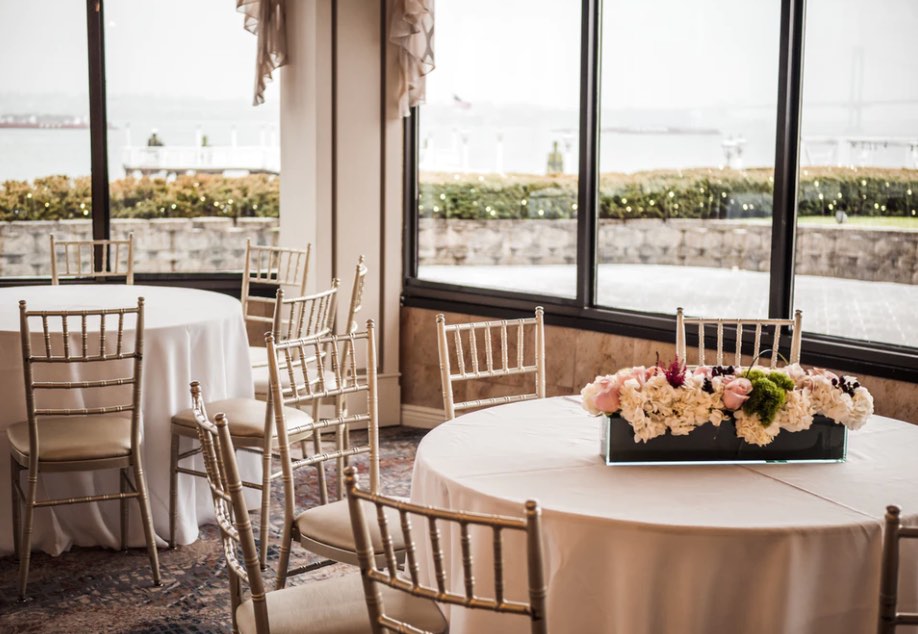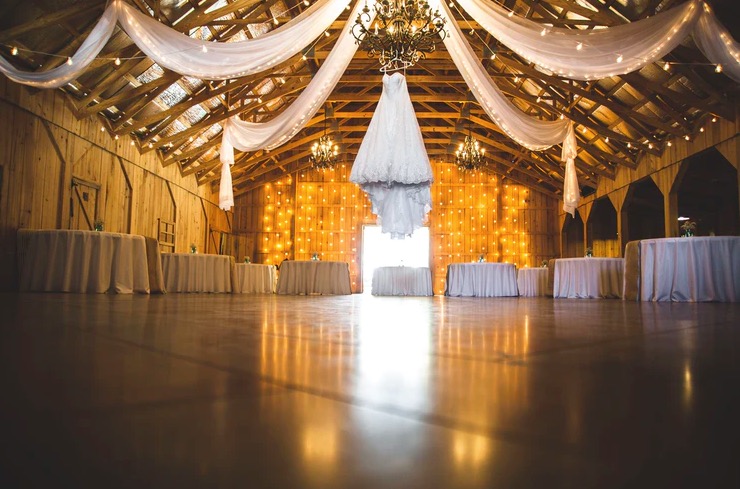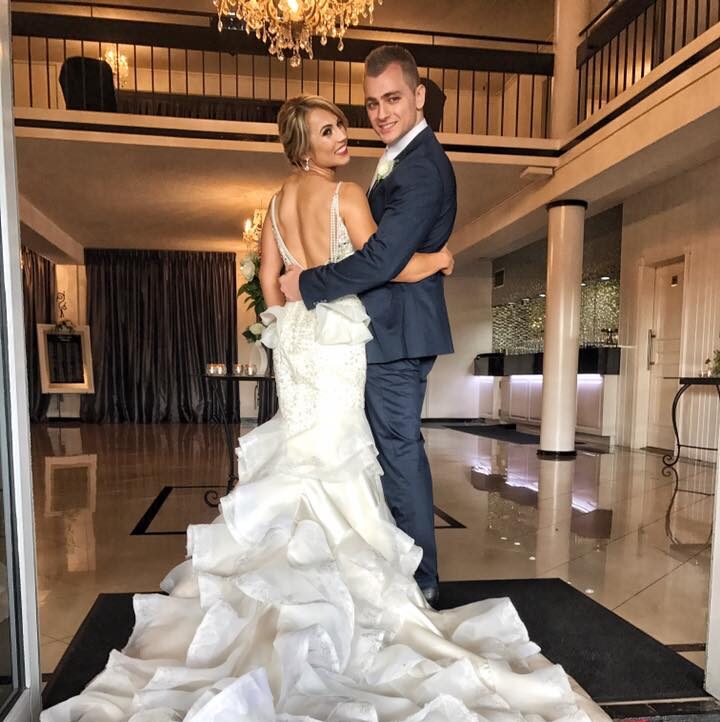Choosing the right wedding venue can be a daunting task. Trust me, I’ve seen it first-hand while planning my own wedding at Vogue Ballroom. It’s not just about finding a beautiful space – it’s about making sure the venue aligns with your vision, fits your budget, and makes your day run smoothly. Whether you’re dreaming of a grand ballroom or a rustic garden, the right venue sets the tone for the entire celebration. In this guide, I’ll walk you through key steps to help you choose the perfect spot for your big day, with real advice from my own experiences.
Define Your Wedding Vision: Why the Right Venue Matters
When I worked with a couple from Melbourne who were looking for a venue, they came to me with a vibe in mind – something rustic and outdoorsy but with the elegance that would make their day feel like a fairy tale. Sounds dreamy, right? But here’s the catch: finding the perfect spot that both represented their vision and could accommodate their guest list? Not so easy. This is where defining your wedding vision and style really comes into play.
Clarify Your Wedding Style and Atmosphere
Before you even think about venues, you need to know who you are as a couple. Take a moment to picture your wedding day. Is it the grand ballroom with crystal chandeliers? Or is it an intimate garden setting with fairy lights twinkling in the trees? Knowing your wedding theme is more than a fun Pinterest board – it’s the foundation for every decision you’ll make.
A couple I worked with wanted something traditional but with a modern twist, so they ended up booking a heritage venue in Melbourne’s CBD that was filled with history but allowed for modern decor. The result? A beautiful blend of both their tastes. When you choose a wedding venue, it should reflect your personal style – whether that’s rustic charm, luxury opulence, or laid-back bohemian.
Must-Have Features: What’s Non-Negotiable for Your Big Day?
Everyone has their non-negotiables. For example, some couples are all about that massive dance floor, while others are set on having a beautiful garden or even a beachfront backdrop. I remember working with a couple who insisted on having a spot for an outdoor ceremony, followed by a reception with sweeping ocean views. They didn’t compromise – and guess what? Their wedding photos were nothing short of breathtaking.
Creating a mood board can help nail down what features you must have. Consider your “must-haves” – a stunning garden, a spacious ballroom, or perhaps a luxury hotel that offers both ceremony and reception spaces. Trust me, visualising these elements can make it easier to narrow down your options.
Set a Realistic Wedding Budget and Stick to It
This is the most crucial step when it comes to choosing your wedding venue. A venue that’s too small can feel cramped and uncomfortable, while a venue that’s too large can make your celebration feel empty. Trust me – I’ve seen both sides of the spectrum.
Why Guest List Size Should Influence Your Venue Choice
I once worked with a couple who had a fairly large guest list but initially chose a venue that was too small for their needs. As the event grew closer, they realised they had to make last-minute changes to accommodate everyone. Not ideal! The right venue should feel spacious without being overwhelmingly large, so aim to choose a venue that comfortably fits your guest list and any additional requirements for your ceremony and reception.
For example, if you’re planning to have a dance floor and live band, you’ll need additional space. If it’s a more intimate ceremony, an outdoor garden venue might work best. Imagine your guests comfortably mingling, dancing, and enjoying the space – that’s the vibe you want to aim for.
Is the Space Flexible Enough for Your Reception and Ceremony?
Many couples like the idea of having both the ceremony and reception at the same venue. It cuts down on transportation time, adds convenience, and keeps the momentum flowing. But it’s important to make sure the space works for both. A rustic wedding barn can be perfect for an intimate ceremony and reception, but might not have the amenities for a more traditional banquet setting. Make sure the venue has the flexibility to host both parts of your day with ease. For example, when we hosted our ceremony and reception at Vogue Ballroom, they seamlessly transformed the space from ceremony mode to reception, which saved us time and effort.
Location, Accessibility, and Proximity: The Key Factors in Venue Selection
When it comes to choosing the location of your wedding venue, convenience is key. Not just for you and your partner, but for your guests as well. I’ve had couples who initially chose a picturesque vineyard in the Yarra Valley for their wedding, only to realise the long drive was going to be a bit of a hassle for out-of-town guests. The scenic beauty was amazing, but the location posed a challenge when it came to transport.
Choosing a Convenient Location for Your Guests
Think about your guests’ experience – is the venue easy to get to? You want to pick a location that makes the day convenient for everyone. If your guests have to drive for hours just to get to the venue, they might start to feel stressed or even miss parts of the celebration. This was something that was important to my partner and me when choosing Vogue Ballroom in Melbourne – it was centrally located and easy for everyone to get to, whether they were coming from the city or the surrounding suburbs.
Consider your venue’s proximity to hotels, airports, and local attractions, particularly for any out-of-town guests. If you’re having a destination wedding, it might be worth selecting a venue near hotels and transport hubs so your guests have fewer logistics to worry about.
Ensuring Your Venue Is Accessible for Everyone
When I planned my wedding, accessibility was something that was on my radar right from the start. Whether you’re hosting an intimate gathering or a grand celebration, it’s crucial to consider whether your venue is easily accessible for elderly guests or those with mobility issues. For example, does the venue have ramps or elevators? Is there a nearby parking lot with adequate space? These might sound like small details, but they go a long way in making your guests feel comfortable.
If you’re hosting a wedding in an outdoor space or a venue with multiple levels, check that all parts of the venue are accessible to everyone. Accessibility might not always be something you immediately think about, but it can be a dealbreaker for some guests.
Wedding Venue Services and Inclusions: What to Look For
When it comes to wedding venues, it’s not just about the space; it’s also about the services and inclusions that come with it. You’ll be surprised at how much can be included in your venue package, and sometimes it’s a game-changer when it comes to your planning.
What’s Included in Your Venue Booking: Catering, Decor, and More
A few years ago, I worked with a couple who were debating between two venues. One included catering, decor, and a sound system, while the other offered only the space and required them to arrange all those services themselves. They ended up choosing the first venue for the ease it provided. Think about your needs – will you need to hire catering separately, or is it something the venue provides? In some cases, like with Vogue Ballroom, catering and decor were included, which made the whole planning process so much easier. This saved the couple time and money, allowing them to focus on other aspects of the wedding, like photography and floral arrangements.
Look beyond just the space to see what the venue offers in terms of services like tables, chairs, linens, sound systems, and AV equipment. Some venues even provide staff for the event, making it easier to manage everything on the day.
Accommodation and Additional Services: What’s Best for You and Your Guests?
An often-overlooked part of choosing a venue is accommodation. If your venue offers on-site accommodation, this can be a huge benefit, particularly for guests who need to travel a long distance. Think about your guests who will need a place to stay – especially those who might have trouble finding nearby hotels or Airbnbs.
When we got married, having on-site rooms for some of our out-of-town guests was a lifesaver. It kept the celebrations going longer and allowed for a more relaxed morning-after brunch, as guests didn’t have to worry about transportation after the reception.
Navigating Venue Policies: Vendor Restrictions and Flexibility
Not all venues are created equal when it comes to vendor flexibility. Some venues only work with their approved list of vendors, while others allow you to bring in your preferred suppliers, sometimes for an additional fee. It’s crucial to know what the venue’s policies are regarding outside vendors before making your final decision.
Know the Rules: Restrictions on Outside Vendors and Services
Let’s talk about flexibility. I remember helping a couple who had their heart set on a specific florist that wasn’t on the venue’s approved list. They were initially disappointed but managed to work out a deal by negotiating the fees for bringing in their own supplier.
Some venues charge a “vendor fee” for outside suppliers, and others may even require you to use their in-house services. Ask the right questions before you get too attached to your dream vendor. If you’re planning to use an outside caterer, florist, or photographer, make sure the venue is on board with your choices.
Flexibility in Service: Finding the Right Fit for Your Wedding
Some venues offer great flexibility when it comes to how you can use the space. This was a huge factor when selecting our venue at Vogue Ballroom – it allowed us to customise the setup, whether for a sit-down dinner or a more relaxed cocktail-style reception. If you have a unique vision, make sure the venue allows for enough customisation to bring that vision to life.
Look for a venue that aligns with your creative desires. If you have a specific style in mind for your decorations or music, make sure the venue supports your plans without too many restrictions.
How to Conduct Venue Walkthroughs and What to Look For
Site visits are one of the most important steps in choosing your venue. It’s easy to fall in love with a venue based on photos alone, but nothing beats seeing it in person to get a real feel for the space. I remember my first site visit at Vogue Ballroom – walking in, I immediately knew it was the right place. The room felt warm and inviting, and I could easily picture our ceremony there.
Why Visiting Venues in Person is Crucial
During site visits, take your time and pay attention to the ambience, layout, and overall condition of the venue. Online photos can often be misleading, so it’s essential to see the venue in real life. Look for cleanliness, how the space is maintained, and the overall vibe. Trust me, walking through the space and visualising your big day will give you insights you can’t get online.
Key Questions to Ask During Your Venue Visit
Before heading to the venue, prepare a list of essential questions. Here are a few questions I recommend:
- What’s included in the venue fee?
- Are there any additional charges or hidden fees?
- How many guests can the venue accommodate for both the ceremony and reception?
- Can I bring my own vendors or do I have to use the ones on the approved list?
- What’s the backup plan in case of bad weather (for outdoor venues)?
These questions will help clarify what you can expect and prevent any surprises down the line.
Compare, Review, and Make the Final Decision: How to Choose the Perfect Venue
Once you’ve visited several venues and gathered all the necessary information, it’s time to review your options and make that final decision. This stage can feel overwhelming – I’ve been there! But don’t worry; there’s a strategy to making this important choice.
Use a Comparison Chart to Weigh the Pros and Cons
The best way to evaluate your choices is by creating a comparison chart. When I was working with a couple who had narrowed their venue list to three locations, I encouraged them to write down the pros and cons of each place. We included factors like price, capacity, location, amenities, and flexibility. A chart helps keep everything organised and makes it easier to see how each venue aligns with your vision. It can also prevent you from overlooking any crucial details.
For example, one venue might offer a beautiful outdoor setting but have limited indoor options if the weather turns. Another venue may be more centrally located but might require you to use in-house vendors. Seeing these differences side by side can help clarify your options.
Trust Your Instincts and Read Reviews
While spreadsheets and charts are helpful, don’t forget to trust your instincts. After all, this is your wedding, and it’s important that you feel comfortable in the space. Read reviews and testimonials from other couples who have used the venue. Online reviews can give you insights into the venue’s reliability, service quality, and any potential issues that may not be immediately obvious.
I’ve seen couples who had their heart set on a venue but changed their minds after reading a few negative reviews. On the other hand, a glowing review could confirm what you already felt walking through the door. For example, a venue I visited had a ton of great feedback for its staff’s professionalism and attention to detail, which made all the difference in the end.
Final Considerations: Logistics, Contingencies, and Peace of Mind
No matter how carefully you plan, it’s always a good idea to prepare for the unexpected. Think of this as your “Plan B.” Some things are just beyond our control, like weather or last-minute changes in your guest list, but with the right venue, you can have peace of mind knowing there’s a backup plan in place.
Preparing for Unexpected Situations: Weather, Logistics, and Overtime
If you’re planning an outdoor wedding, it’s crucial to check whether the venue has an indoor backup plan in case the weather doesn’t cooperate. I worked with a couple last year who wanted an outdoor ceremony at a beautiful garden venue. They were worried about the weather, so we made sure the venue had an indoor option ready to go. The day of the wedding, rain came down in buckets, but they were prepared, and the indoor ceremony went off without a hitch.
Also, make sure you’re clear on logistics such as setup and breakdown times, curfews, and potential overtime fees. I’ve seen couples scramble last-minute because they didn’t factor in the extra time needed to set up the venue or take everything down. Clarify the timeline with your venue and ensure they’re flexible if things go a little over.
Expert Tips for Handling Wedding Venue Logistics with Ease
Here’s a pro tip: think through your wedding day from start to finish. Walk through the flow of events – where will the ceremony take place? Where will the guests go after the ceremony? Is there a space for cocktails while the reception space is being set up? Visualising this will help ensure everything flows smoothly. The last thing you want is to have guests waiting around in the wrong space or feeling unsure about where to go next.
I’ve seen many couples who make this mistake, but they quickly realise how helpful it is to have a detailed plan. It doesn’t have to be overly complicated – just simple steps that guide everyone along.
Let’s Get Straight to the Point
Choosing the perfect wedding venue is crucial for setting the right tone for your celebration. Start by defining your vision and style, whether that’s rustic, elegant, or something else. Stick to a realistic budget and make sure the venue can accommodate your guest list comfortably. Consider location, accessibility, and services like catering and decor inclusions. Always visit venues in person, ask the right questions, and trust your instincts when narrowing down your options. Remember, flexibility with your wedding date or guest list can save you money, and being prepared for contingencies ensures a smooth day.




